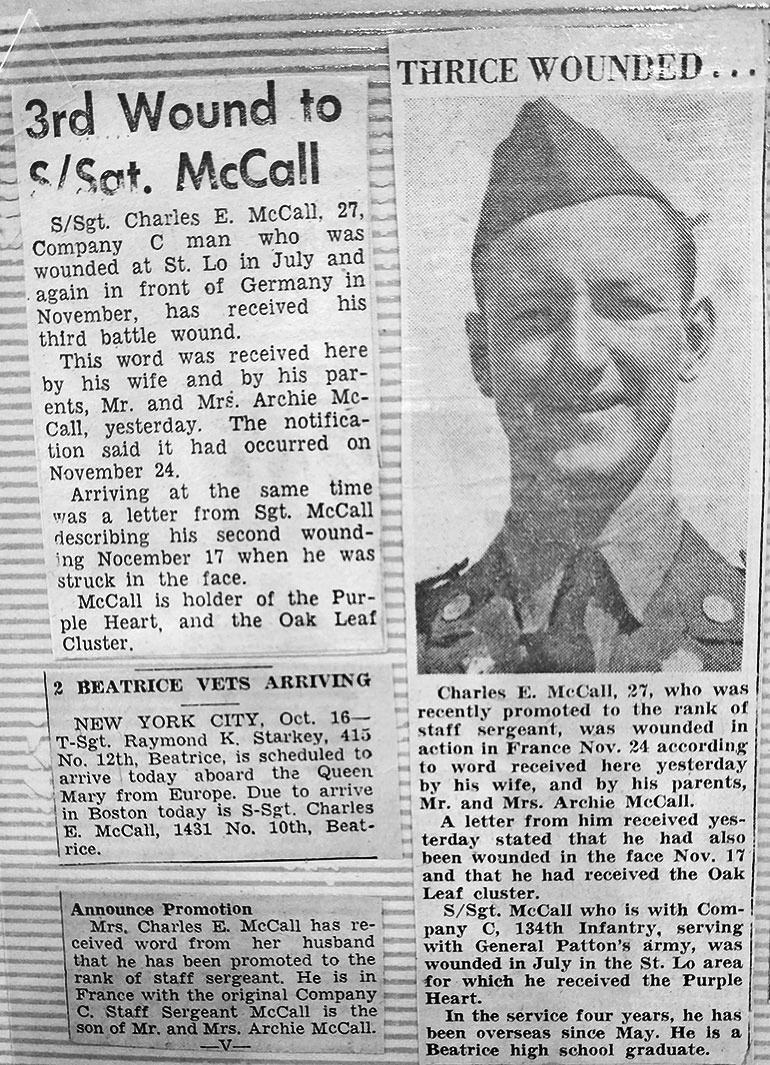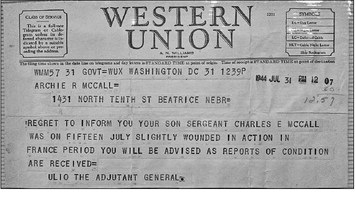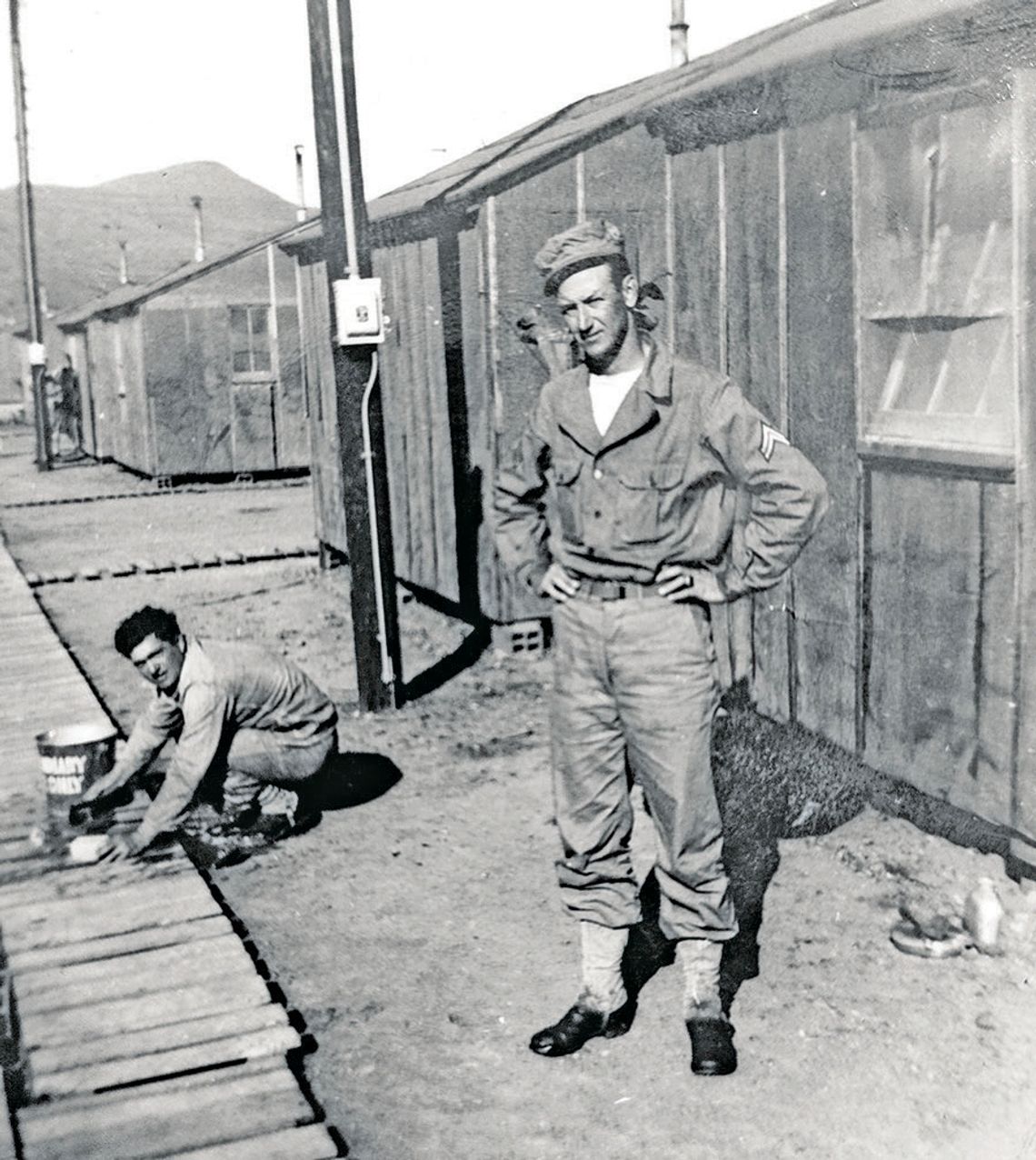McCall scrapbook chronicles D-Day, war wounds, honors
When Allied troops stormed the beaches of Normandy, France, on D-Day, June 6, 1944, soldier Charles McCall was out at sea, anticipating his Company C 1st Battalion’s call.
McCall ended up coming ashore June 8.
The English Channel was still tainted red, he told family, from all the Allied forces gunned down before ever reaching shore during one of the bloodiest battles of World War II.
Boerne residents David McCall and his wife, Peggy, recently shared glimpses into an aging but thorough scrapbook that chronicled Charles McCall’s World War II journey, assembled by the serviceman’s mother.
“He did say it was still very intense,” David McCall said of his father’s recounting of the war. “When
Salute To Veterans B-Section Inside they did land, he said, ‘You just ran for your life as fast as you could through that water.’” Charles McCall, awarded the Purple Heart with Oak Leaf Cluster, died in 1996 at the age of 79.
As is common with many combat veterans, “He never ever talked about it until he was really sick, and older,” his son said. “I just let him talk; I never did ask questions. We’d be watching a show and it would remind him of something.”
Later in life, the veteran opened up and told stories behind the news clippings contained in the scrapbook.
Company C followed Gen. George Patton and his tanks to Saint-Lô, France. They were in skirmishes all along, and there was an instance where they were pinned down in foxholes by machine gun fire.
The elder McCall realized what he had to do, his family said.
“They knew they needed to take out the German machine gunners’ nest and a couple guys volunteered. He got up there and could throw the grenade the farthest, and he took out the machine gun nest,” Peggy McCall said.
Her father-in-law then got hit in the right leg by shrapnel from a mortar.
The son picked up the story, noting, “The medics couldn’t get to him because the fighting was so intense. So they threw him in a tank track, because it was so muddy, the tank tracks were deep. He had to lay there until it got dark and the medics could go get him.”
McCall’s recovery began in a U.S. Army hospital in Bath, England.
“All the guys in there said, ‘Man, you are lucky. You got a ticket home. Well, my dad, he went back,” David McCall said with a laugh. “He couldn’t go back into the infantry because of his hip. So he drove a truck, supplying the front lines with supplies.” The elder McCall was injured three times during the hostilities.
A second involved a shot or shrapnel to the face, but the present-day McCalls have not found an account detailing his third injury.
Company C experienced heavy casualties, David McCall said.
A photo taken Jan. 3, 1941, shows the company’s 125 men. Only seven survived the war, the son said.
The scrapbook contains the telegrams the family received, including the one informing them Charles McCall had been wounded: “Regret to inform you your son Staff Sergeant Charles E. McCall was slightly wounded in action Twenty Four November (1944) in France. You will be advised as reports of condition are received.”
McCall would carry the marks of battle with him his whole life, his offspring said.
“It bothered him all his life. They couldn’t get all the shrapnel out; they said he likely be paralyzed if they did,” David McCall said. “He had shrapnel in the back part of the hip his whole life.”
Initially, Charles McCall enlisted in the National Guard to earn extra money for the family.
“Little did they know, there would be a world war,” David McCall said.
When war broke out, Charles McCall and the other National Guard troops were shipped to California to protect the West Coast from enemy attack.
He returned home before being assigned to Fort Bragg, North Carolina, for training prior to going overseas.
That deployment became D-Day.
“He was the kind of guy who never looked for attention. He just went about his job. He was just a nice guy,” David McCall said.










Comment
Comments